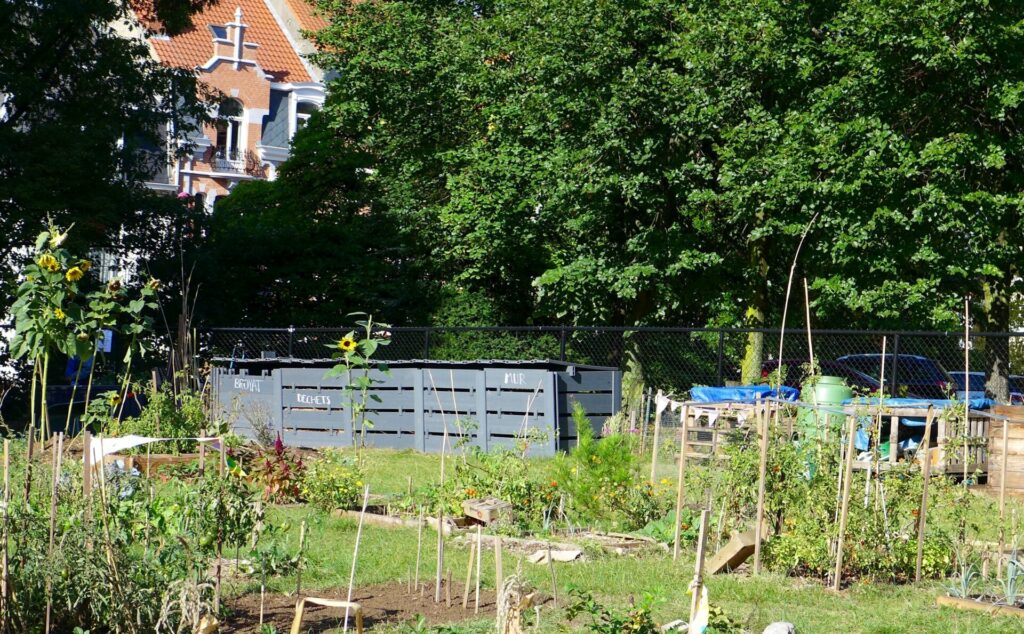The first of seven neighbourhood composts for residents of the City of Brussels was inaugurated on Saturday, providing an alternative to the orange bag or home composts.
From 15 May, it will be compulsory throughout the Brussels-Capital Region to use an orange rubbish bag for food waste as part of a bid by the government to ensure it can be revalued and converted into renewable energy or into compost rather than it being dumped in white bin bags.
As part of the orange bag obligation, the city will provide people with a container for their filled orange bin bags for free to avoid them from being torn open by animals when left out, for example.
However, Brussels households are also given the possibility to compost their food waste individually or in a communal composting place. By creating the neighbourhood composts, the city wants to guide its residents in this.
Valorising waste
In the Pocket Park on Rue du Champ de l'Eglise in Laeken, Alain Maron, Brussels’ Minister of Climate Transition and Environment, and Zoubida Jellab, Deputy Mayor of Public Order of the City of Brussels, inaugurated the first such neighbourhood compost.
“Given climate change, it is crucial to reduce our amount of waste and valorise what we still produce,” said Jellab. “Our organic waste, once composted, becomes a valuable green gold that later nourishes trees, vegetable gardens, and flower boxes and makes your orange bag significantly lighter.”
From this weekend, participating residents can dump their food scraps here with the support of the city’s compost guide.
Related News
- New Brussels rubbish collection calendar announced, orange bag use enforced
- Brussels orange bin bag obligation pushed back to mid-May
This way, residents can help produce food for nature in the neighbourhood. Eventually, six neighbourhood composts and one compost within the non-profit association La Source will be available for all residents of the City of Brussels to deposit their organic waste there.
“Burning waste is no longer the solution,” said Maron. “If we want to achieve our climate goals, something has to change. And Brussels is changing. Here we are providing another local solution for residents, we are valorising food waste and we are creating a resource to improve and feed the soil," he concluded.

